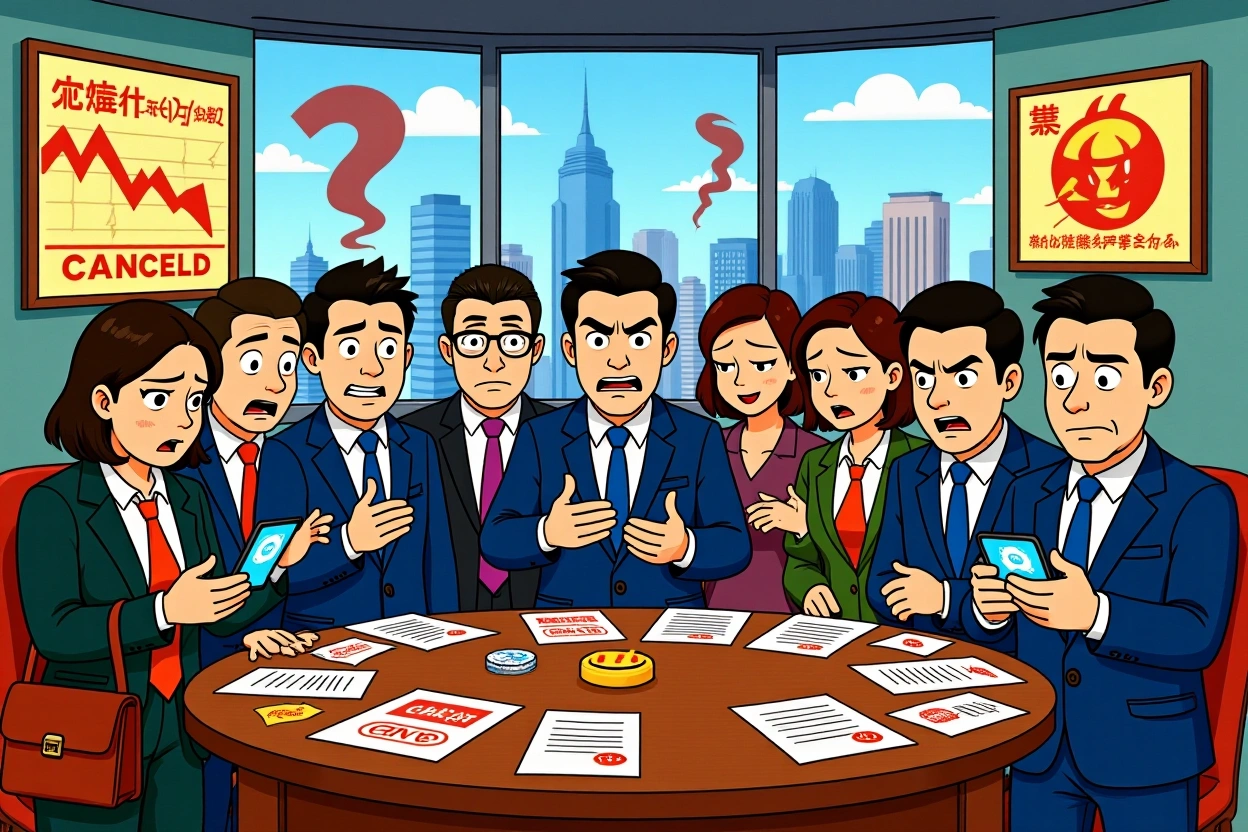The Shock Termination
Shenli Co., Ltd. (603819) sent shockwaves through China’s capital markets on July 29, 2025, when it abruptly announced termination of its planned controlling stake transfer. The deal collapse stems from buyer Liaoning Weishu and its partner Kangqi Asset failing to meet payment deadlines for acquiring 22% equity from founder Chen Zhongwei (陈忠渭). This eleventh-hour breakdown marks the second failed ownership transition since 2022 and spotlights persistent execution risks in China’s corporate restructuring landscape.
Transaction Timeline and Collapse
The Original Agreement (April 2025)
On April 14, 2025, Shenli’s controlling shareholder Chen Zhongwei signed definitive agreements to sell 47.9 million shares to Liaoning Weishu and its partner Kangqi Asset at RMB 14.553/share, totaling RMB 697 million. The deal would install Liaoning Weishu’s Wang Xue (王雪) as new controller upon Shanghai Stock Exchange approval.
Payment Breakdown and Failure
Critical payment milestones unraveled despite SSE’s clearance:
- First installment (RMB 252M) was successfully paid post-agreement
- Second & third installments (RMB 445M total) due within 10 days of SSE confirmation (July 18) never materialized
- Chen Zhongwei confirmed zero payment receipt by July 29 deadline
- Formal termination agreements executed after buyer consultation
Parallels With Previous Failed Transfer
2022 Restructuring Attempt
This marks Shenli’s second collapsed control shift:
- June 2022: Chen Zhongwei agreed to sell 8.5% stake to Sichuan Yumingyao at RMB 14.07/share
- Planned private placement would give Sichuan Yumingyao 29.62% control
- Transaction completed September 20, 2022 share registration
Private Placement Derailment
The 2022 deal’s secondary component failed when Shenli withdrew its RMB 249M placement application in August 2023 citing ‘capital market conditions’, leaving Sichuan Yumingyao’s Yao Xiongjie (姚雄杰) unable to secure controlling stake.
Financial Performance Context
2025 Earnings Recovery
Shenli concurrently announced H1 2025 profit rebound:
- Net profit projection: RMB 5.6-8.4 million vs 2024 loss
- Core profit: RMB 3.93-6.63 million
- Key driver: Absence of 2024’s RMB 76M bad debt provision
Bad Debt Backstory
The 2024 provision originated from unreceived RMB 177 million in repurchase payments from military contractor Lijian Group, highlighting Shenli’s persistent receivables risks despite operational stabilization.
Market and Regulatory Implications
Investor Protection Concerns
This case reveals systemic gaps:
- SSE approval lacks payment enforcement mechanisms
- No public penalty disclosure for defaulting buyers
- Minority shareholders bear uncertainty costs
Broader M&A Governance Patterns
Shenli’s troubles reflect wider Chinese M&A pain points:
- 2022-2025 CSRC data shows 23% of small/mid-cap control transactions fail
- Primary failure causes: financing issues (61%), valuation disputes (29%)
- Regulators strengthening escrow requirements since 2024
Broader Industry Implications
Shenli’s predicament highlights critical vulnerabilities across China’s industrial manufacturing sector:
- Electrical component producers average 68-day payment cycles with customers versus 41 days in consumer goods
- Energy equipment sector records highest failed M&A rate among industrials
- Ownership transition failures precede 12-month share price underperformance in 79% of cases
HSBC analysts note smaller manufacturers face heightened execution risk when dealing with cross-provincial buyers lacking established track records.
Future Pathways
Corporate Governance Priorities
Shenli urgently needs to:
- Establish buyer financial vetting protocols
- Require third-party payment guarantees
- Structure future deals with graduated ownership transition
Investor Recommendations
Shareholders should monitor:
- Changes to board composition
- Strategic partnership announcements
- Receivables monitoring system upgrades
- August 30 earnings call disclosures
Navigating Ownership Uncertainty
Shenli’s recurring transition failures underscore how buyer credibility assessment remains critical in Chinese M&A. Investors should emphasize debt-free suitors with sector expertise amid the company’s renewed search for controlling partners. With H1 profitability restored but governance questions lingering, Shenli’s true test lies in demonstrating transaction execution competence. We recommend shareholders advocate for enhanced buyer screening documentation before supporting any future control transfer proposals.




